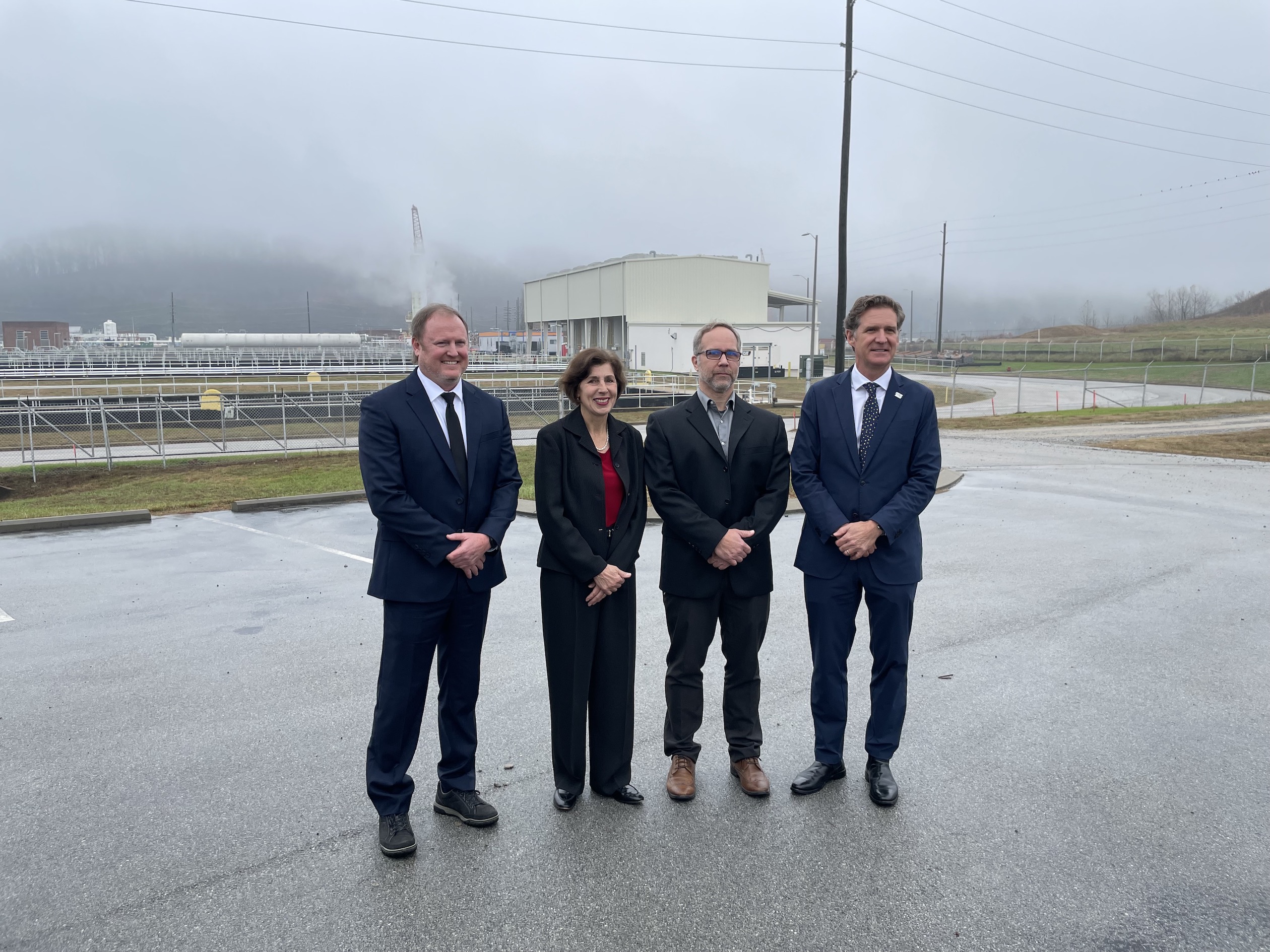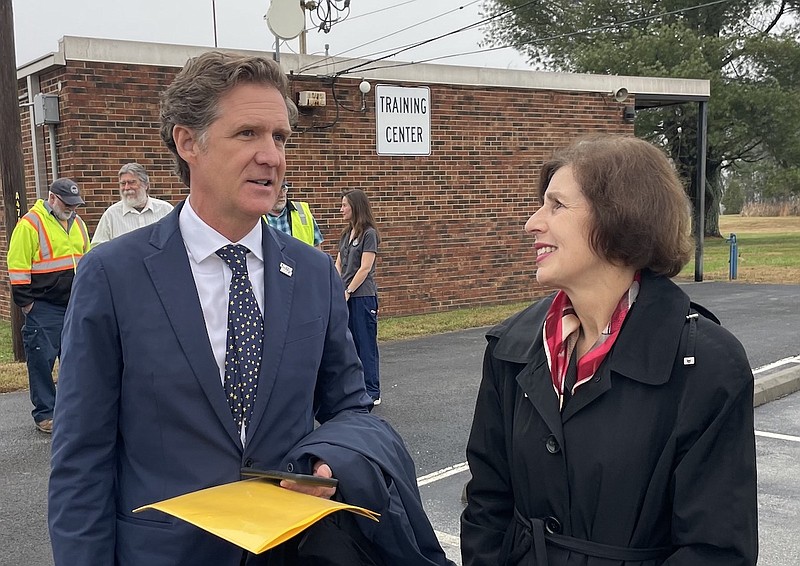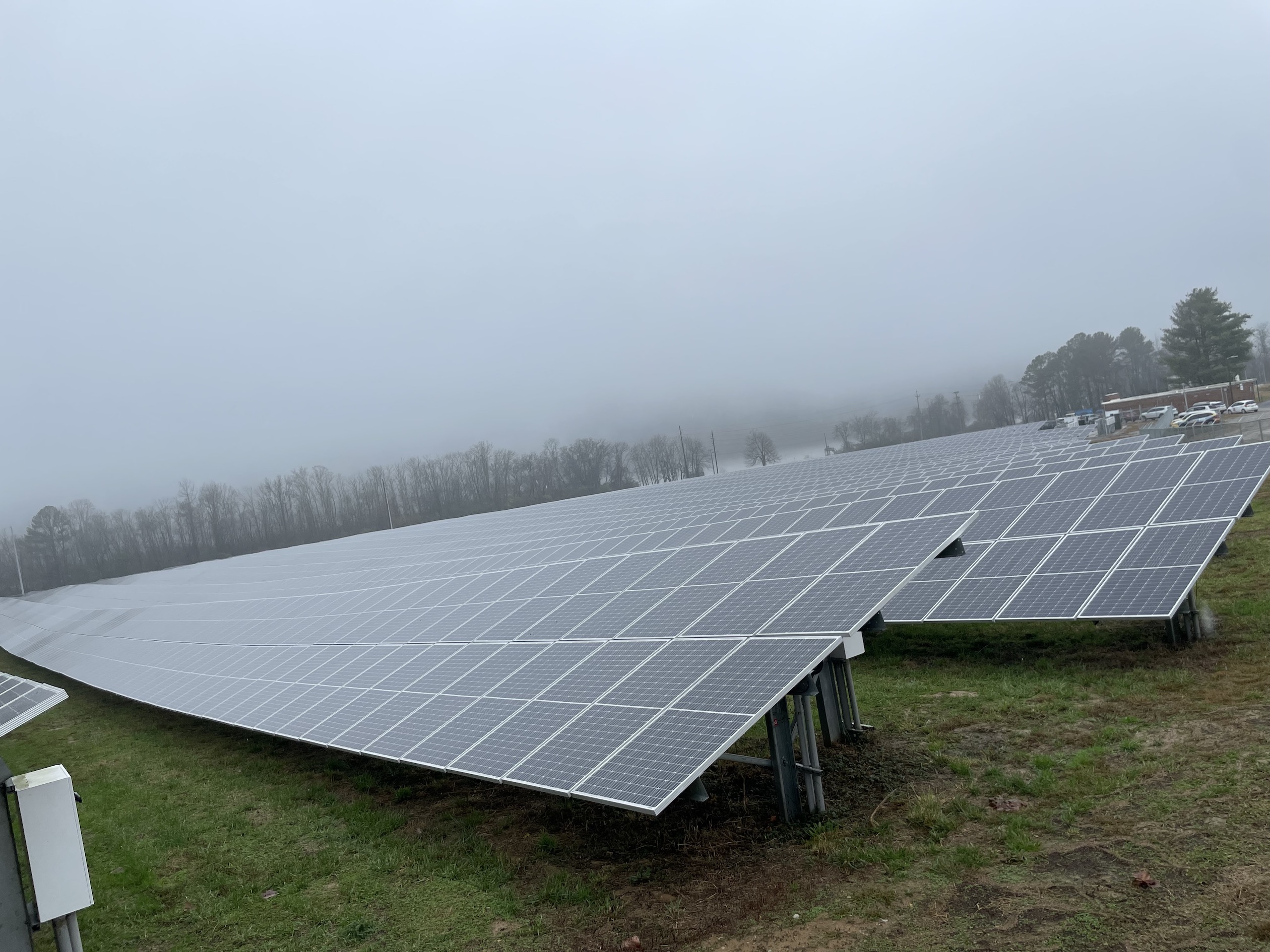In January 2016, then-Mayor Andy Berke signed Chattanooga up for a national Better Buildings challenge and pledged to cut the city's energy use by at least 20% over the next decade.
Less than eight years later, Chattanooga has nearly doubled those goals by cutting energy use in the city's 200 buildings and plants by 36% below the 2013 usage, and current Mayor Tim Kelly promised Wednesday to do even more.
"Sustainability is in Chattanooga's DNA, and it is at the heart of everything we do from economic development to public health to our overall quality of life," Kelly said Wednesday during a tour of the energy upgrades made at Chattanooga's Moccasin Bend Sewage Treatment plant, which is the biggest power user for the city. "Energy efficiency plays a huge role in our ability to effectively preserve our natural resources for future generations, while also reducing the city's operational costs so that we can better fund the things that matter most to Chattanoogans."
Kelly said the energy upgrades made by the city help preserve its natural appeal, reduce the city's carbon footprint and save taxpayer costs for energy bills. Kelly said energy upgrades made at city buildings, combined with new smarter technologies and a solar farm at Moccasin Bend, have cut the city's annual electricity bill by about $2 million.
"As mayor, there are not many things that can be win, win, wins, but this is one of those," Kelly said.
Chattanooga, Knoxville and Atlanta are three of about 40 U.S. cities that are participating in the Better Building Challenge that then-President Barack Obama began in 2011 to encourage cities, businesses and nonprofits to identify and share ways they are cutting their energy use. Since the federal program was launched in 2011, more than 900 Better Buildings partners have collectively saved $15.3 billion in energy costs with their innovative approaches and strategies for adopting energy-efficient technologies.
The U.S. Department of Energy said those savings are equal to 155 million metric tons of carbon emissions, or roughly the amount of greenhouse gases emitted by 20 million homes in one year. Maria Vargas, director of the Department of Energy's Better Buildings Initiative, said decarbonizing America's building sector is a key part of President Joe Biden's plan to reach a net-zero carbon economy by 2050.
"As a nation, we spend about $200 billion a year to light, heat and cool our buildings, and we know, on average, 20% to 30% of that energy is wasted," Vargas said during a visit with city officials in Chattanooga. "Recognizing that, we said a decade ago that we need some leaders to step up and answer a call to not only set a very aggressive public goal but to also share with others how they are doing."
Vargas said cities, businesses and developers are learning from one another about ways to do more with less.
The city of Chattanooga first joined the Better Building Challenge in 2015 and has since surpassed its goal with a variety of energy efficiency advancements ranging from new automation systems and LED lighting installations to major heating and cooling modifications to better wastewater treatment processes.
The city cut energy use at the downtown library by more than 40% after spending $1.5 million on new lighting, heating and air conditioning.
In 2019, Berke outlined plans for the city to erect a 10-acre solar farm near the Moccasin Bend sewage treatment plant. With nearly 10,000 panels, the $5.25 million solar array generates up to 4 megawatts of electricity. Combined with modifications to the equalization basins at the sewage treatment plant, has city has reduced energy use at Moccasin Bend by 27%, according to Moccasin Bend Environmental Campus Director Mark Heinzer.
The solar array at Moccasin Bend was one of the first in the state for a water and wastewater treatment facility, although EPB and the Chattanooga Airport also have built solar farms to produce electricity on city-owned sites in Chattanooga.
Other improvements at Moccasin Bend have reduced annual water usage by 24% compared to 2013 levels. Together, Heinzer said the projects have reduced the cost to power the plant by $1.4 million annually.
Chattanooga was recognized in 2019 as the top city among 25 challenge participants in achieving the greatest saving in energy use intensity after trimming the city's energy use by 30% below the 2013 levels. Kelly said he has worked to continue the initiative that Berke began and expanded the savings since.
"As a goal-achieving partner in the Better Buildings Challenge, the city of Chattanooga has shown energy efficiency leadership," Vargas said. "Their work to reduce energy and water usage across their portfolio is a great example of how cities are helping lead the way to a more efficient and resilient future."
Contact Dave Flessner at dflessner@timesfreepress.com or 423-757-6340. Follow him on Twitter @DFlessner1.
 Staff photo by Dave Flessner / During a rainy Thursday, city and U.S. Department of Energy officials discussed how Chattanooga has exceeded its Better Building challenge to cut energy use by more than 20%. From left are Erik Schmidt, director of sustainability for the city; Maria Vargas, director of the Department of Energy’s Better Buildings Initiative; Mark Heinzer, director of the Moccasin Bend Environmental Campus, and Chattanooga Mayor Tim Kelly.
Staff photo by Dave Flessner / During a rainy Thursday, city and U.S. Department of Energy officials discussed how Chattanooga has exceeded its Better Building challenge to cut energy use by more than 20%. From left are Erik Schmidt, director of sustainability for the city; Maria Vargas, director of the Department of Energy’s Better Buildings Initiative; Mark Heinzer, director of the Moccasin Bend Environmental Campus, and Chattanooga Mayor Tim Kelly.

